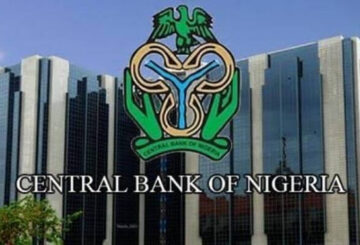 Ex-depot price of Premium Motor Spirit otherwise known as petrol has risen by 110 per cent in four months,
Ex-depot price of Premium Motor Spirit otherwise known as petrol has risen by 110 per cent in four months,
The data showed that the ex-depot price rose from N148 per litre last October to an average of N312 per litre on February 3 this year.
As the sole importer of petroleum products, the Nigerian National Petroleum Company Limited had set the price which products can be sold to oil marketers at depots at N148 per litre.
However, the scarcity had seen prices hit an average of N312/litre within the space of four months, according to the latest industry data report published by the Major Oil Marketers Association of Nigeria.
While the hike was witnessed at the depots, pump prices had also jumped from N179/N180 per litre to as high as N500/litre, depending on the location.
According to the data, the least average ex-depot price of petrol within the period under review was N303/litre.
It noted that N303/litre was recorded at Apapa depots, while N305/litre was recorded at Ibafon depots. The product was sold at the highest price of N312/ltr at Satellite depot- all in Lagos State.
Although NNPCL recently jerked up ex-depot price to N172 per litre, the Depots and Petroleum Products Marketers Association of Nigeria said rising foreign exchange rate contributed to the increasing price of petroleum products at depots.
DAPPMAN also cited illegal levies and high cost of daughter vessels as other factors fuelling the price hikes.
The Independent Petroleum Marketers Association of Nigeria with over 30, 000 members, and controls 80 per cent of the market share in the downstream sector, have continuously lamented daily price increment at the depots.
They also lamented the high cost of transporting products to their respective stations, high running costs, among others.
IPMAN Chairman, Satellite Depot, Akin Akinrinade advised the Federal Government to revive the refineries to allow for local production.
“The lasting solution is for the refineries to start functioning and we begin local refining”, he said.
On his part, Operations Controller, IPMAN Mike Osatuyi, said the removal of fuel subsidy and deregulation was the key to resolving the fuel scarcity menace.
He said, “The permanent solution is to deregulate and remove subsidies. Allow the market to be a free market where marketers other than the NNPC will be able to bring in products. Since the government said the subsidy will be removed in June, let’s wait and see, but until then, we have to manage.”
While MOMAN advised that deregulation of the downstream sector would eradicate fuel scarcity, the group also said NNPCL as the sole importer of petroleum products had put a strain on the country’s resources and limits private sector participation.
“To this end, industry experts mostly recommend opening up the supply side as set out in Section 317 (8 to 11) of the PIA 2021 by encouraging private sector participation in the importation of refined petroleum products. This can be achieved through a transparent and inclusive process, which will help to reduce the current inefficiencies in the sector”, the group said in its latest report titled ‘Industry Data Sheet’.


